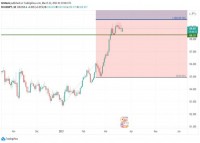|
By Mark Melin As Chicago Federal Reserve President Charlie Evans signaled the desire to accelerate quantitative easing and stimulus to encourage growth, others question this policy as having significant hidden risk. "I see asset purchases continuing until the end of 2013," he said in an April 16 speech at the Union League Club of Chicago, where he also pushed for a new unemployment target of 5.5% rather than ending stimulus at 6.5%. President Evan's prepared remarks were full of benefits of easy monetary policy, but listed inflation as the only outward risk of the never before utilized strategy of the Federal Reserve purchasing government bonds. When asked to simply list the headline risks in quantitative easing, Mr. Evans noted "distortion of pricing mechanisms" and the potential to create "frothy markets" as he engaged in a longer explanation. Answering a later question, Mr. Evans noted that financial instability fears are a concern in some quarters. Perhaps most interesting was Mr. Evans apparent acknowledgement of the potential for a significant debt crisis crash. Mr. Evans repeated references that Congress / the sequester failure would be to blame for any future debt crisis crash is both positive and negative. It is positive in that credible debt crisis concerns are, apparently, on the agenda. Its negative in that the Fed might recognize the significant problem future political leaders face. Societal Risks 
Former Pension Corporation partner and author Dr. Bob Swarup notes the debt crisis with alarm.
Financial stability fears are putting the topic in mild focus. Bridgewater's Ray Dalio, among a litany of thought leaders, has noted in public comments that he fears that inattention to the debt crisis could lead to a 1933 style extremist government if not properly managed. "When considering a debt crisis, economists often tend to look at the debt crisis "from a monetary point of view alone and completely ignore the human aspects as well as the socio-political ramifications," noted Dr. Bob Swarup, whose book on the foundations of financial crises Money Mania is due out in spring of 2014. "Money is a social construct. That means by definition anything related to money has wider ramifications across society," said Dr. Swarup, who recently wrote a white paper on the European debt crisis and its historical parallels with Lombard Street Research titled "Til Debt Us Do Part" "Right now in Europe, unemployment is in double digits while in Spain, for example, over 50% of the youth population is unemployed - a significant problem and the cause of major strains in the fabric of society. These are all the right ingredients for populist politicians and extremists to come into power," he said. When considering a debt crisis, economists often tend to look at the problem "from a monetary point of view alone and completely ignore the human aspects as well as the socio-political ramifications. Formerly a partner at London's Pension Corporation, where he oversaw the firm's investments in alternative assets, Dr. Swarup now consults with institutional investors and asset managers for Camdor Global. "Right now there is too much debt in the system and limited capacity to add more. Basically to reignite sustainable growth, much of the debt needs to be eliminated." And therein lies the problem. "The belief that all this debt will be repaid at some point down the line is misplaced, it's just not going to happen. Bondholders would like to hope they're getting all their money back. But hope is not a strategy and the answer is most of them won't in real terms. The problem they face is that unless they come to this realization sooner rather than later and restructure accordingly, the chances of recovery become progressively smaller. It's an unfolding tragedy of small decisions." A full transcript of this interview will be made available in next month's issue of Opalesque Futures Intelligence. |
|
This article was published in Opalesque Futures Intelligence.
|





 RSS
RSS











